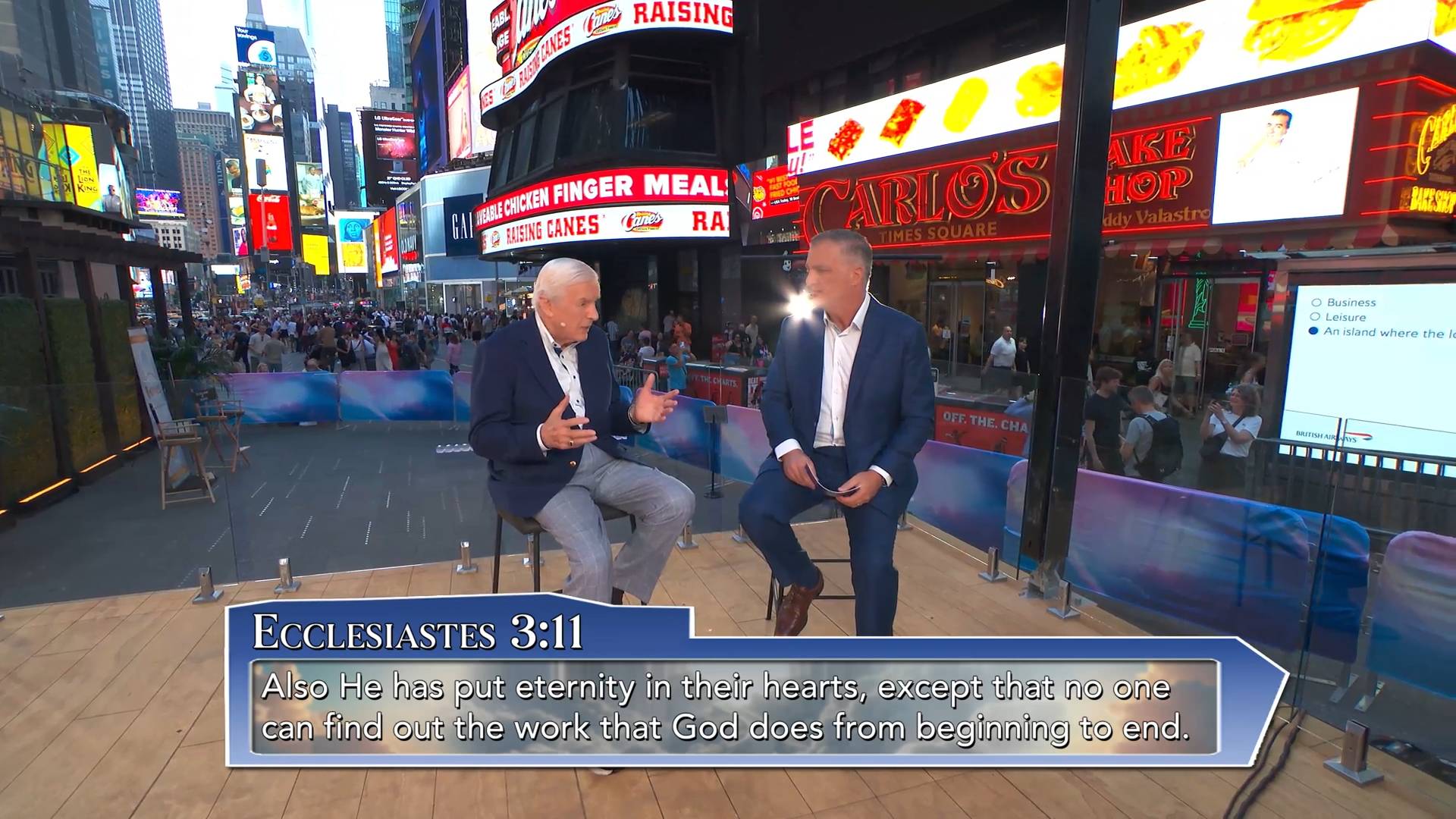Did you know there is more than one heaven mentioned in Scripture? When the apostle Paul wrote to the Corinthians about his visions and revelations, he told them of a time when he was “caught up to the third heaven” (2 Corinthians 12:2). That clearly implies there is also a first and second heaven.
The first heaven is the atmospheric heaven—the sky with its clouds and birds and life-giving oxygen. Genesis 1:20 says, “Birds fly above the earth across the face of the firmament of the heavens.” Psalm 104:12 talks about the “birds of the heavens,” meaning birds flying through the pathless air. Referring to God’s ability to send rain clouds across the land, Job asked, “Who has the wisdom to count the clouds? Who can tip over the water jars of the heavens?” (Job 38:37 NIV) Isaiah 55:10 talks about how “the rain and the snow come down from heaven” (NIV).
In these passages, the word “heaven” refers to the atmosphere that sends its rain and snow down to the earth. We live on a privileged planet, surrounded by a thin layer of gases—mainly
nitrogen and oxygen—that make life possible. The first heaven is the place within that atmosphere where clouds form, birds fly, and lightning flashes.
The second heaven is the vast universe beyond our atmosphere—outer space, filled with billions of stars, planets, constellations, meteors, and galaxies. The book of Psalms praises God for the lavish display of His glory in the universe around us. Psalm 8:3–4 says, “When I consider
your heavens, the work of your fingers, the moon and the stars, which you have set in place, what is mankind that you are mindful of them?” (NIV)
Psalm 19 begins, “The heavens declare the glory of God; and the firmament shows His handiwork” (verse 1).
Jesus predicted a coming day when “the sun will be darkened, and the moon will not give its light; the stars will fall from heaven” (Matthew 24:29). These are all references to the second heaven, the stellar skies.
The third heaven is the one Paul had in mind when he wrote,
I know a man in Christ who fourteen years ago—whether in the body I do not know, or whether out of the body I do not know, God knows—such a one was caught up to the third heaven. And I know such a man—whether in the body or out of the body I do not know, God knows—how he was caught up into Paradise and heard inexpressible words, which it is not lawful for a man to utter. (2 Corinthians 12:2–4)
Paul was not referring to the atmospheric heaven or to the stellar heaven. He was referring to the highest heaven, the very dwelling place of God. King Solomon spoke of this in 1 Kings 8:27, when he prayed, “But will God indeed dwell on the earth? Behold, heaven and the heaven of heavens cannot contain You. How much less this temple which I have built!”
Moses called this the “highest heavens” in Deuteronomy 10:14. Other Bible writers described it as God’s holy temple. The prophet Habakkuk wrote, “But the Lord is in His holy temple. Let all the earth keep silence before Him” (Habakkuk 2:20).
This heaven—the heaven of heavens, the highest heaven, the Father’s house—is the locale of the throne and the dwelling place of God. It is Paradise. It is our eternal home. This is where we will soon live side by side with God and with the angels and with the redeemed of all the ages.
----
For more on this topic, see chapter 3 from Dr. Jeremiah’s book, The Promise of Heaven: 31 Reasons to Get Excited About Your Eternal Home





















































































